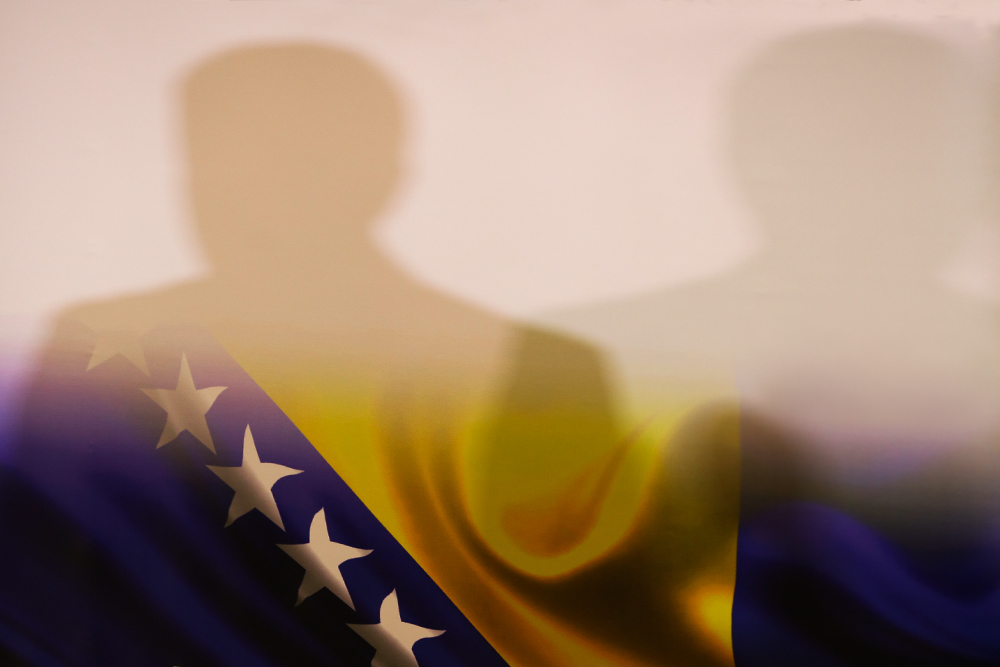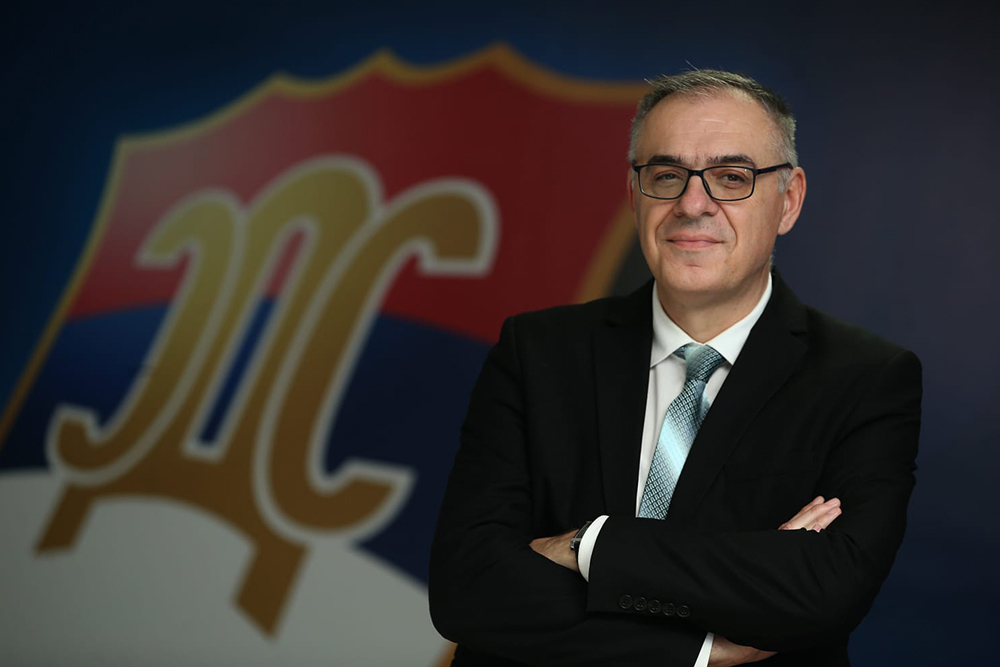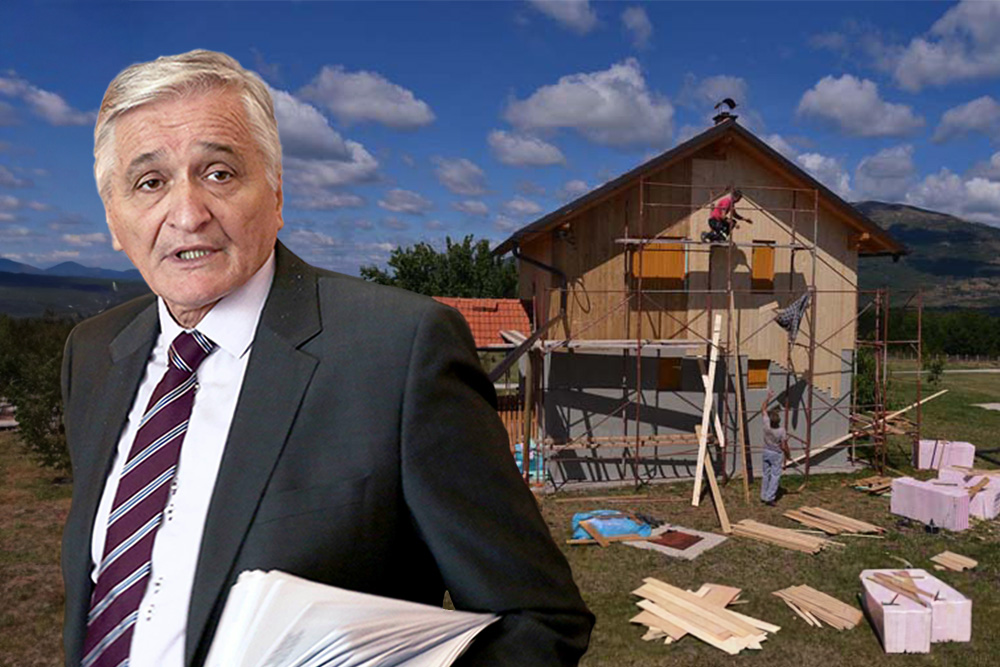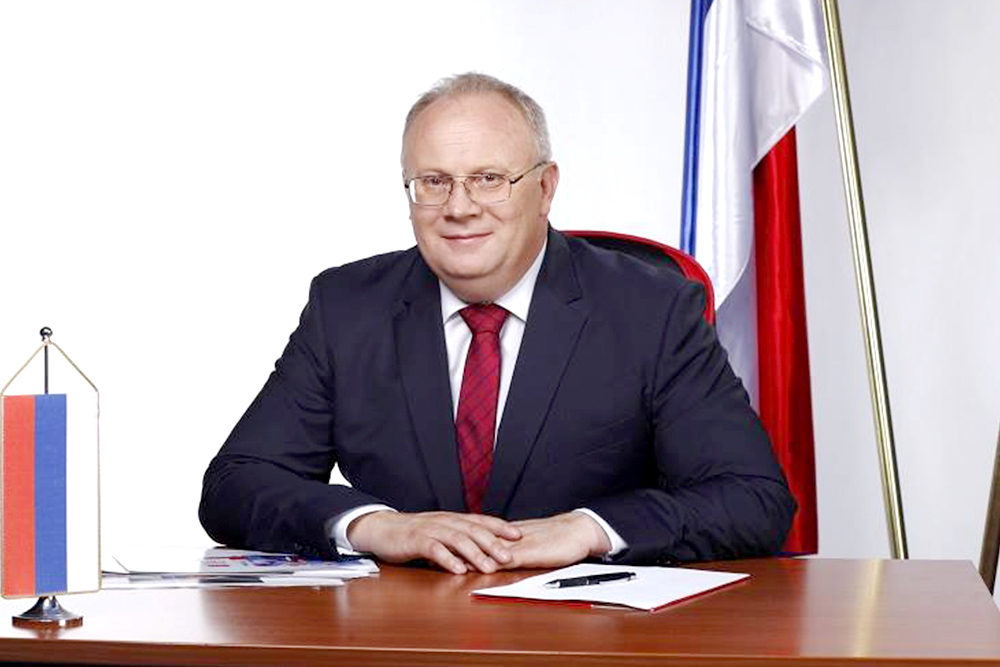Since campaigning began Sept. 3, religious leaders in churches and mosques around the country – usually speaking to front rows packed with the senior dignitaries of just one party — have urged followers to show up at the polls.
In mid-September, at the blessing of the new St. Mathew on Rudnik Church in Mostar, for example, Bishop Ratko Perić urged believers to vote ‘ by conscience’ or if they chose to stay home Oct. 3 to stop complaining about elected officeholders. In the front row sat the top brass of the Croatian Democratic Union (HDZ) including President Dragan Čović.
The bishop ‘didn’t comment’ to the media a priest who answered the phone at the bishopric told the Center for Investigative Reporting in Sarajevo (CIN). The Catholic Church’s position on the elections was published in a statement of the Bishops’ Conferences of Bosnia and Herzegovina (BiH) and the Republic of Croatia in Banja Luka on July 2 anyway.
It called on displaced Bosnian Croats to register for the elections and instructed priests to ‘analyze the situation regarding the BiH elections and give proposals for action.’ Public personalities of Bosnian origin were called on to set an example.
This call was headed by Zagreb Mayor Milan Bandić (born in Donji Mamići) and by Croatian handball players Slavko Goluža (from Stolac) and Denis Buntić (from Ljubuški). They all supported HDZ’s Borjana Krišto, a member of the BiH Presidency.
The role of religion in elections was highlighted in a survey CIN commissioned by Prism Research and conducted between Sept. 10- 13. It found that 45.6 percent of BiH citizens thought that each of the three major religious communities was biased, or somewhat biased, toward certain political parties and candidates, while 73.6 percent said they thought religious communities would play an important role in the election campaign.
A random sample of 300 people was selected for the survey. Of that number, 152 referred to themselves as Bosniaks, 96 as Serbs, 37 as Croats, eight as other. Seven refused to state their ethnicity. Little more than half said they lived in rural areas.
Even though two-thirds of the respondents identified themselves as members of one of the three dominant religions, 79.6 percent agreed that religious leaders should not suggest who to vote for.
The respondents, who said they did not belong to any of the majority religious communities (26 percent), were also of the opinion that religious organizations should not support political parties.
Dunja Jelovac, vice-president of Our Party, said that religious leaders influence politics by manipulating emotions and not through rational thought. Just like the nationalist parties, she said, the major religions relate only to one part, and not all citizens of BiH.
Edhem Bičakčić, president of the Islamic Community’s Assembly, said that religious officials should not publicize their opinions during services, but that what they did ‘in private gatherings…was their business.’
One Case of a Political Party Playing with Religious Fire
In mid-July, at the opening of a mosque in Tešanj, the envoy of the highest leader of Muslims in the country, said that no Muslim would ever say ‘that a crime took place in Dobrovoljačka’ and he urged believers not to vote for those who “do not love this country.’
The reference was clear. This March in London, a member of the first BiH presidency Ejup Ganić was arrested on the arrest warrant from Serbia that alleged involvement in the 1992 massacre of ex-Yugoslavian army soldiers trying to leave Sarajevo.
Depite an agreement between the then BiH Presidency and the Yugoslav Army, the BiH Army attacked in the narrow street of Dobrovoljačka. According to a police officer in Eastern Sarajevo, 42 soldiers were killed, 73 wounded and 215 taken prisoners.
The arrest galvanized Muslim Bosnians and when the president of the ruling Party of Democratic Action (SDA) Sulejman Tihić told the media that a crime had occurred on Dobrovoljačka street, senior officials of the Islamic Community and other Bosniak politicians went to use his words to discredit him as Bosnian patriot.
Reis ul Ulema Mustafa Cerić revealed his opinion about the SDA president in Dnevni Avaz newspaper without directly mentioning Tihić’s name. ‘Pointing a finger at BiH Army soldiers and calling them terrorists is unacceptable and should be roundly condemned’ said Cerić.
Tihić never called BiH Army soldiers ‘terrorists.’
Cerić, who had appeared to back the candidacy of Fahrudin Radončić, the owner of Avaz, and he dented Tihić’s credibility by hinting he supported those in the government who claim 3,000 potential terrorists, members of the Wahhabi movement, are in BiH. His remarks came shortly after a terrorist attack in Bugojno last summer, heightening their effect.
Contributions, Reconstruction and Return
Religious organizations give parties the floor to show off contributions.
On Sept. 21, after a Mass led by Cardinal Vinko Puljić before some 1,000 believers in the municipality of Derventa, the HDZ‘s candidate for vice-president of the Republika Srpska (RS) Ivo Kamenjašević stood up to talk. He said that his party was giving 30,000 KM towards construction of the Church of St. Ana, as well as 100,000 KM to electrify the village of Velika Bukovica.
Often, one political party criticizes another for using religious ceremonies to achieve political ends, only to find itself in the same situation in the following elections.
In 2008, a Doboj branch of the Alliance of Independent Social Democrats (SNSD) filed a complaint with the Central Electoral Commission (CIK), because ‘An election convention and political promotion of Serb Democratic Party’ took place at the Church of Holy Mother of God, instead of a public prayer for Radovan Karadžić. CIK threw out the complaint as unfounded.
On Sept. 21, six senior SNSD office holders—four of them candidates—were pronounced godfathers of the newly built Congregational Memorial Temple in Doboj in honor of the 120,000 KM in total they had contributed.
Milorad Dodik, one of them, told an audience of about 5,000, that they wanted to be godfathers ‘Because the temple brings us together, testifies to our unity, strengthens our faith in the Serb Orthodox Church, in the RS and Serbian people.’
Mirko Okolić, a member of the board for construction of the church and an SDS functionary, said it was not right for the head of the RS government to turn an auction into a spectacle for his party’s promotion.
The memorial temple was blessed by a Zvornik-Tuzla bishop Vasilije Kačavenda. Last year, media outlets published the news that Kačavenda had led a prayer that the Lord gives strength to Milorad Dodik to defend the RS.
Official bodies of the religious communities, not just individual leaders, sometimes pay tribute to candidates who contribute to the development of their community or help their members.
The Office of Zakat at the Rijaset of Islamic Community published a Sept. 7 statement which read that this Muslim obligation was met by a number of people — but it named only Radončić. He was said to have paid 50,000 KM ‘out of his personal property’ to the Rijaset’s account.
Zakat is earmarked for the poor and disabled. Every Muslim has an obligation to donate 2.5 percent of his yearly earnings over and above what is required for essential needs. Until this year, the Islamic Community has never revealed individual sums given by any zakat donors.
More Money for Religion during Election Years Every year religious communities get money from the budget of all levels of governance, but the amount of taxpayers’ contributions rises in election years.
By the end of the election year of 2008, the RS Secretariat for Faiths at the RS Ministry of Education and Culture spent more than 7 million KM instead of 4.6 million KM that were budgeted in the summer. In 2009, the RS Secretariat for Faiths spent 5.9 million KM instead of mid-year planned 4.4 million KM.
The Office of the RS Auditors found that a couple of ministries gave in 2008 nearly an additional million in contributions to religious communities, even though not authorized to do so. The Ministry for Refugees and Displaced Persons contributed 714,000 KM to the rebuilding, fixing and new building of places of worship, said auditors. The RS Ministry for Spatial Planning, Construction and Ecology gave 220,000 KM.
The list of places of worship to be reconstructed during 2009 with state funds featured several building such as the Islamic Center in Jablanica (30,000 KM) and an orthodox church in Banja Vrućica, Teslić (50,000 KM). But Bosniaks were not expelled from Jablanica during the war, nor were Serbs from Teslić. A BiH watchdog called the Union for Sustainable Return and Integration has concluded that these were cases of unjustified spending.
During the BiH Bishops’ Conference in July, RS Vice President Davor Čordaš, a Croat representative and HDZ member, revealed to the Vatican ambassador that 1.5 million KM was to be allocated from the BiH Fund for Returnees for reconstruction of buildings owned by Catholic Church.
In September during the election campaign, Čordaš signed four contracts with representatives of the church giving them over 2 million KM of state money.








